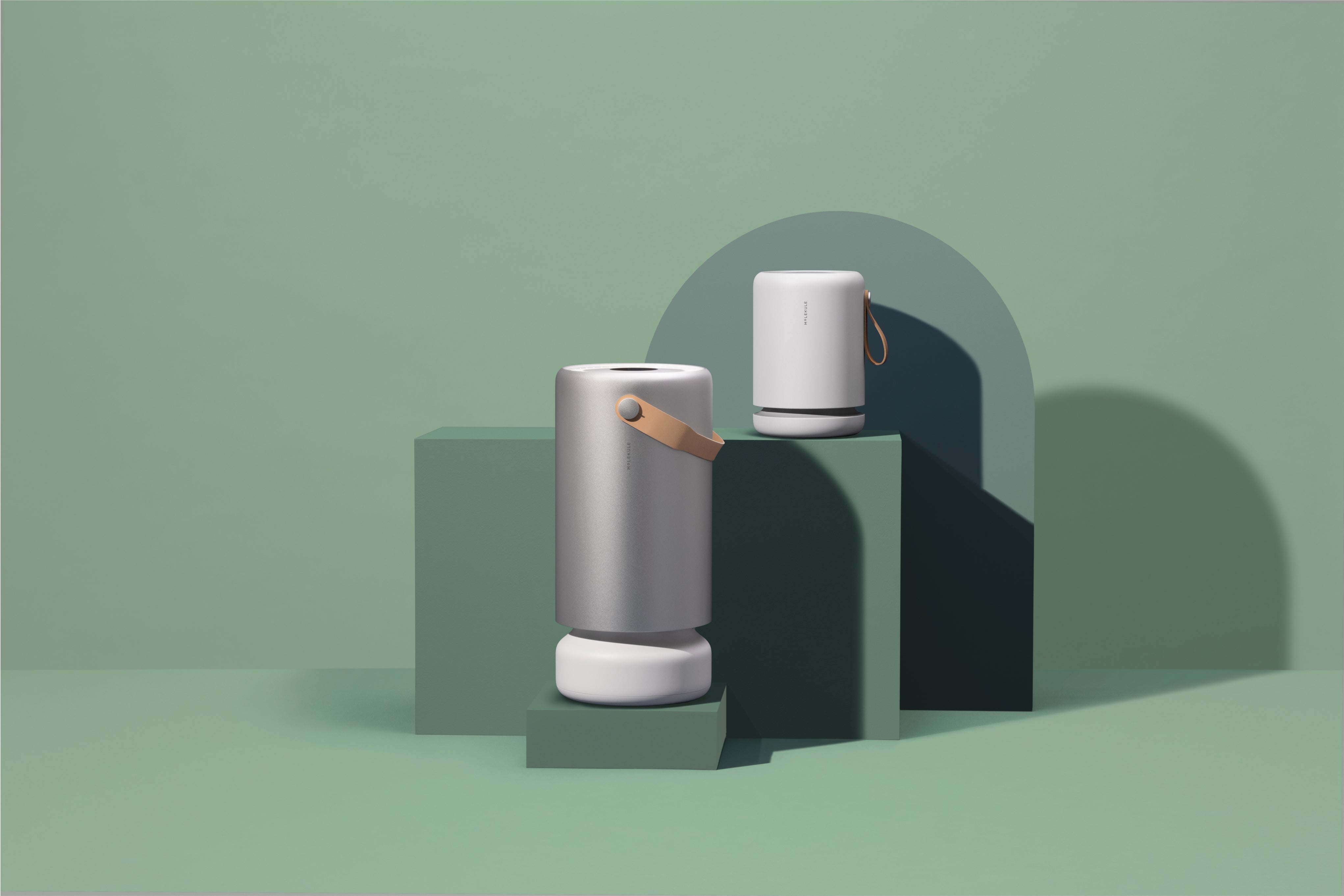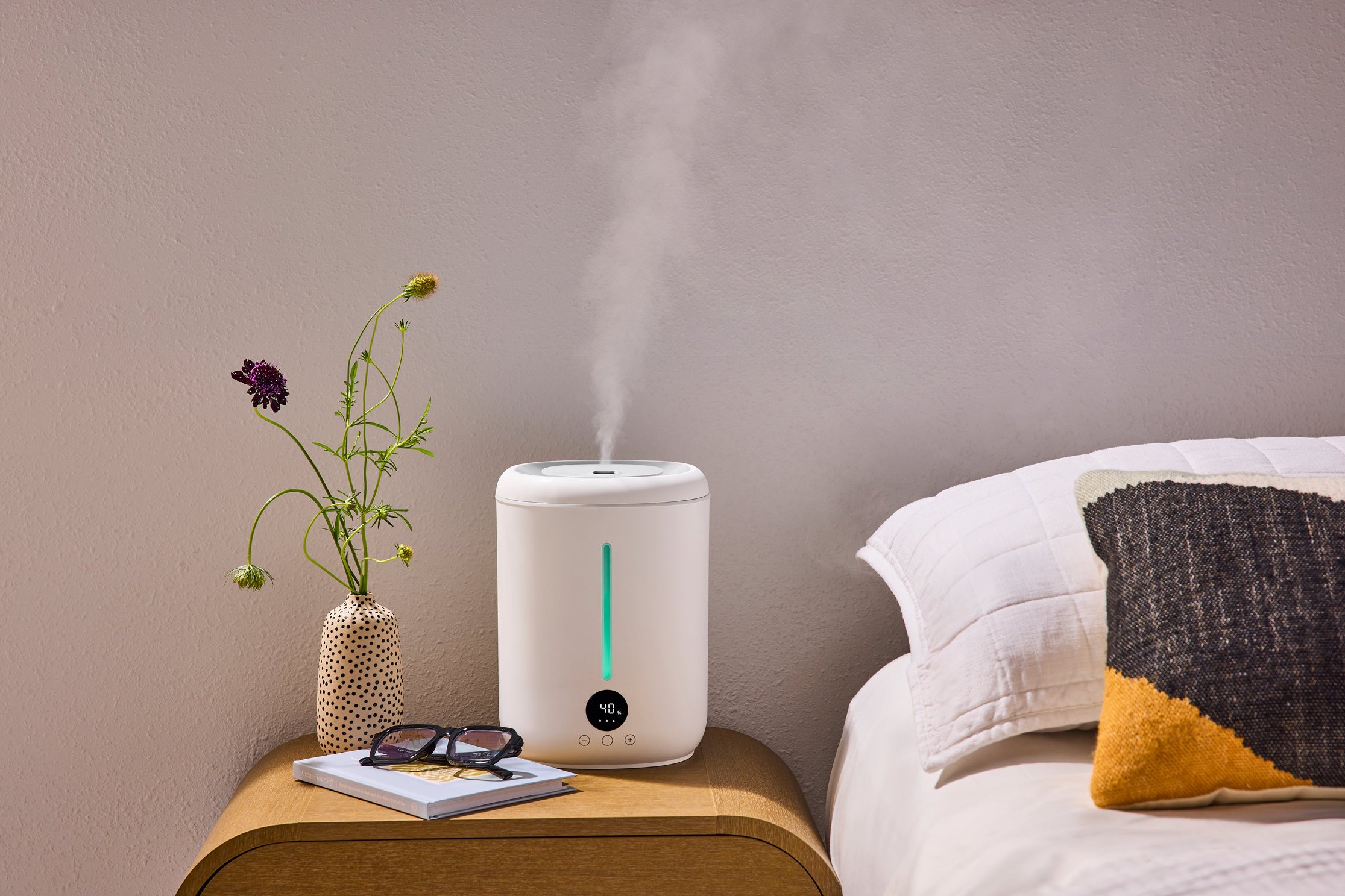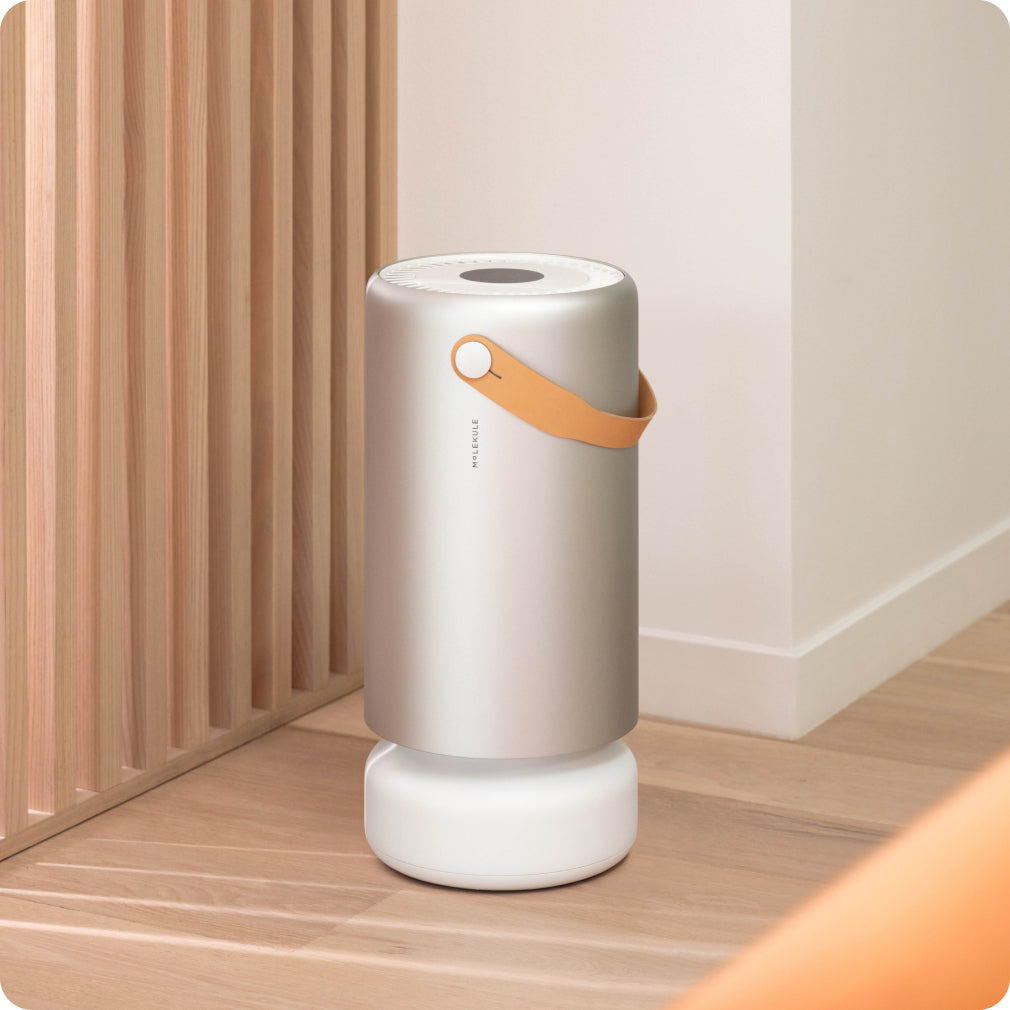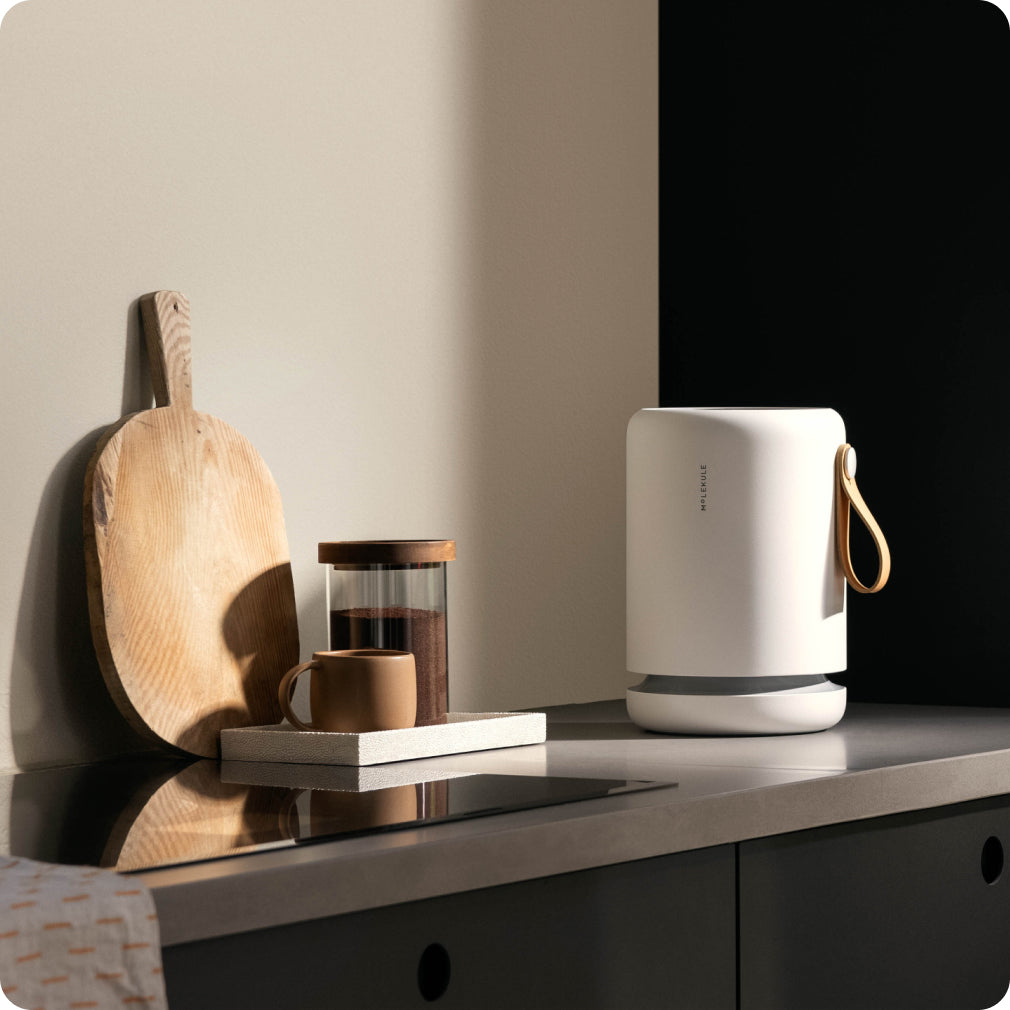When it comes to buying an air purifier, there is a lot to consider. From industry and customer reviews, to the specific needs a device can help with, how it has been tested, and how it has been verified, ensuring you are well informed on the technology is key to any decision. Perhaps equally important, is ensuring you are fully aware of air quality when it comes to buying a device that can purify it. In order to best select the air purifier for you, knowing what makes up the air you breathe, and thus, how a device can help you clean the air, is an important step in educating yourself when purchasing a device of this nature.
Outside of the home, non-biological particulate matter, like soot or smoke particles, is a focus of attention. Though this kind of outdoor particulate matter can enter the home because of wildfires or simply from fossil fuel combustion from cars and power plants, it can even be created indoors when cooking or burning a candle. That said, it is not the only pollutant to think about in the home.
To get a sense of the vast diversity of pollutants that can get in the air, here is a diagram of what can make up the air we breathe:

Particulate matter is only one component among the myriad of other pollutants in the air today. Even focusing on particulate matter, handheld particle counters are incapable of measuring the toxicity or biological activity of the particles they count. There are many additional sources of volatile organic compounds (VOCs), ozone, mold, and other microorganisms in modern indoor spaces.
Despite this, particulate matter is often the only pollutant some discuss or focus on regarding indoor air quality. Molekule is on a mission to not just purify the air, but to reexamine the industry standards that have led consumers to think that particle filtration is the best test of how clean the air is.
Current industry approach to air quality testing
For years, the traditional approach to air purification has been to use high-powered fans to move large volumes of air through a collecting filter, such as a HEPA-compliant filter. Essentially, what this does is mechanically strain larger floating matter from the air and store it on the filter.
The fact that HEPA technology traps some pollutants- not all- means living organisms like mold and bacteria are not destroyed.
More importantly, HEPA technology was not designed to block ultramicroscopic pollutants, including VOCs (airborne chemicals). In fact, the EPA has issued a statement on VOCs’ impact on indoor air quality, showing that there are currently no federal standards on VOCs in the home, while pointing out their risks.
This transient process of capturing pollutants is something the industry designed its testing parameters around to help demonstrate the air is being cleaned. So while running a 50 minute test on removing particles with a particle counter is one test for cleaning air, it is not the complete picture. In fact, the most common standard that air-cleaning devices adhere to was first developed by the Association of Home Appliance Manufacturers (AHAM) in the 1980s, and was last updated in 2006. These standards are testing an air cleaner on its mechanical ability to collect bits of matter and it stands to reason that this standard does not take into account the recent research on the other factors of indoor air quality.
In the real world, air is composed of countless billions of rapidly moving and interacting particles and gases. It is important to consider as many of these substances as possible when testing air quality because not all pollutants are captured by mechanical filtration, and many are currently impossible to separate from air without a chemical reaction. For many of these pollutants, the testing methods are new and require expensive equipment operated by highly skilled technicians in controlled laboratory settings.
Molekule’s mission to push the industry forward
Molekule’s PECO technology was not designed to have the same effect as traditional filter technology like HEPA-rated technology. It was designed with the goal to address a wider range of pollution components. During his childhood, one of Molekule’s founders, Dilip Goswami, experienced frequent asthma attacks. The family tried a variety of air purifiers, including those with HEPA technology, but he was still not able to find relief.
Fortunately, Dilip’s father Yogi Goswami applied his skills as a chemical engineer and material scientist to devise a better air purification technology. His hypotheses were that traditional filters were not dealing with microscopic substances in the air that people were beginning to focus on and that other elements were being trapped on the filter but never destroyed. Instead of just seeking out a way to capture smaller particles, Dr. Goswami proposed a novel approach using Photo Electrochemical Oxidation (PECO) to destroy pollutants at a chemical level, removing them from the air his son was breathing.
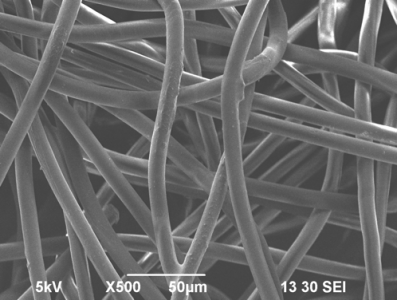
SEM image of Molekule’s PECO-Filter: Destroys pollutants at a molecular level, with no trace of mold growing after exposure
In the ensuing decades, Dr. Goswami tested PECO technology with modern scientific techniques vetted by leading researchers in the field. For example, he contracted with the University of Minnesota Particle Calibration Laboratory to test how well PECO technology eliminated pollutants like ozone and VOCs, while also examining existing technology like carbon filters and HEPA filters. This demonstrated how PECO cleaned the air in an entirely new way. From these experiments, it became clear that, while traditional filter technology certainly had an effect on air quality, it did not work on some pollutants.
Molekule’s approach to scientific testing
PECO technology has been tested with modern scientific techniques vetted by leading researchers in the field. This work has been conducted with the University of Minnesota Particle Calibration Laboratory to test how well PECO technology eliminates pollutants, like ozone and VOCs, that HEPA technology isn’t designed to attack. These experiments also include the examination of existing technology like carbon filter technology and HEPA-compliant filter technology to demonstrate how PECO technology cleaned the air in an entirely new way. From these experiments, it became clear that there were components of pollution that were not addressed by traditional filter technology.
Research on PECO technology at Aerosol Research and Engineering Laboratories, and by Dr. Goswami and Dilip Goswami at the University of South Florida, where Dr. Goswami is a professor, further suggest how the technology can eliminate infectious microorganisms in the air. These tiny pathogens were not simply captured but rather their very structures and the toxins inherent in them were destroyed.
Further experiments from the nationally recognized testing laboratory Intertek have been commissioned on PECO technology as further evidence that PECO can improve the quality of the air in new ways.
Molekule’s approach for a more complete, science-based air quality solution
From VOCs and mold, to pollen and other allergens, studies suggest that these indoor pollutants deserve more attention. As the researchers who have studied the pollutants in our indoor spaces have shown, PECO technology has the ability to destroy these types of pollutants, and those who seek cleaner air should take note.
Molekule is confident in claiming the ability of PECO technology to destroy pollutants. This confidence does not come from just our own testing, but from third party researchers and laboratories.
As we have started to commercialize this technology, we are gratified by the responses of thousands of people who have shared their belief in, and satisfaction with, the Molekule air purifier.
As a science-based company, Molekule has been testing assumptions about air pollution using scientific principles. Indoor air pollution is much more than just particles – it may include a host of unwanted biologically active and gaseous pollutants and our technology can help destroy them in the air you breathe.
Molekule set off on a path seeking not only to bring cleaner air to the world, but also to further educate people on the composition of air and the need for a more complete approach. Molekule continues on this path today, making our rigorous scientific testing of PECO technology available to the public to show its promise.
